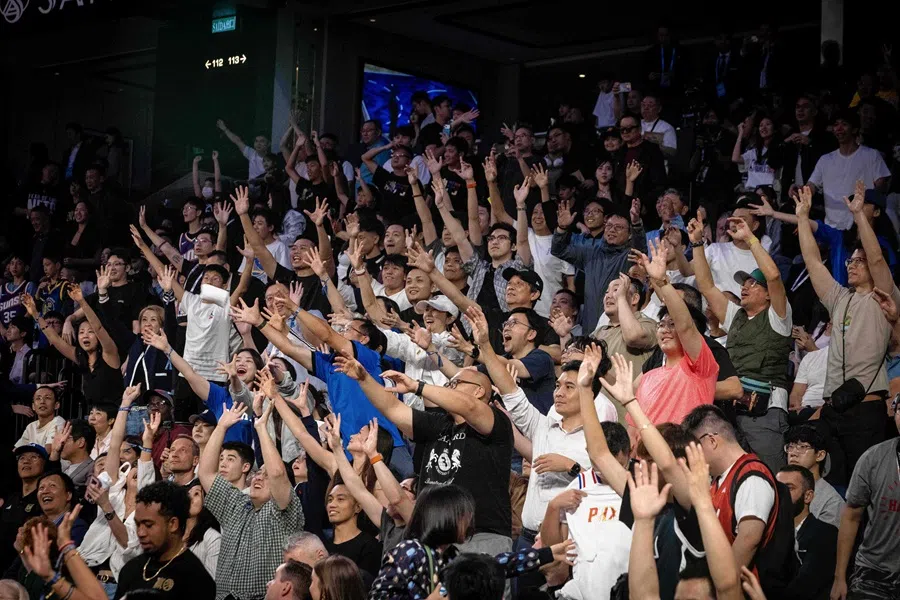As APEC 2026 lands in Shenzhen, Hong Kong fights for relevance
Hong Kong hopes to capitalise on Shenzhen’s APEC 2026 spotlight, but rising rivals in the Greater Bay Area threaten its standing. Can the city avoid being eclipsed? Lianhe Zaobao’s Tai Hing Shing explores the stakes.

In recent years, the Chinese government has accelerated the integration of Hong Kong and Macau into their national development framework. The ongoing 15th National Games of China has broken from the traditional single-host format and is co-hosted by Guangdong, Hong Kong and Macau for the first time.
This new initiative has not only reignited discussions about the Greater Bay Area (GBA) bidding for the Olympics, but it has also drawn attention to whether there will be interactions among Guangdong, Hong Kong and Macau during the Asia-Pacific Economic Cooperation (APEC) summit, which is to be held in Shenzhen next year.
World-class tech companies like Huawei, Tencent and DJI have sprouted in the city, and have earned plaudits internationally.
Shenzhen steps into the spotlight
The APEC is one of the highest-level, most influential economic cooperation mechanisms in the Asia-Pacific region. Traditionally, the APEC Economic Leaders’ Meeting (AELM) is held annually, rotating among member economies, with leaders from each member attending. China has previously hosted two APEC summits, including the Shanghai summit in 2001 and the Beijing summit in 2014.
After more than a decade, China is set to host the 33rd AELM in Shenzhen, Guangdong, in November next year. This makes Shenzhen the third Chinese city to host the APEC summit, after Shanghai and Beijing.
As a large number of foreign dignitaries and media gather at the meeting, the government often considers whether a city can adequately represent the country’s image when selecting the next host. Over the past few decades, Shenzhen has developed rapidly, becoming a globally recognised city of reform and innovation. World-class tech companies like Huawei, Tencent and DJI have sprouted in the city, and have earned plaudits internationally. This is likely the main reason Beijing decided to have Shenzhen host the APEC summit in 2026.
APEC’s meeting hierarchy
APEC generally operates across five levels: the AELM, ministerial meetings, senior officials’ meetings, committees and working groups, and the APEC Secretariat. These meetings follow a sequential calendar each year — senior officials meet first, followed by ministers, and finally the AELM, which serves as the high-profile highlight of APEC’s annual agenda.
... some argued that the authorities should use this opportunity to secure some APEC ministerial meetings or entrepreneur forums for Hong Kong and Macau.

While the AELM garners the most global attention, its agenda is largely shaped in advance at the senior officials’ and ministerial levels. Ministerial meetings therefore play a key role, as they typically convene ahead of the summit to finalise themes and priorities.
Senior officials’ meetings act as APEC’s central coordinating hub. Composed of director-general-level representatives from each member economy, they oversee APEC’s broad portfolio of activities and report directly to ministers. Under their direction operate various committees — such as the Committee on Trade and Investment and the Economic Committee — which focus on specialised policy areas.
Since the 1990s, APEC has also held a wide range of sector-specific meetings, though many occur irregularly. These cover fields such as education, environmental sustainability, science and technology, SMEs, telecommunications, trade, and transportation. A few specialised gatherings, including the SME Ministerial Meeting and the APEC Finance Ministers’ Meeting, meet on a more predictable annual basis.
Hong Kong and Macau vie for greater APEC involvement
After news emerged that Shenzhen will host next year’s AELM, the neighbouring governments of Hong Kong and Macau quickly expressed their welcome. However, some argued that the authorities should use this opportunity to secure some APEC ministerial meetings or entrepreneur forums for Hong Kong and Macau.
Take Macau as an example — local commentators hope it can once again host the APEC Tourism Ministerial Meeting, or even go a step further by hosting the High-Level Dialogue on Cultural and Creative Industries. This would deepen APEC members’ understanding of Macau and support Macau’s accession to APEC membership, particularly with the support of China and Hong Kong.
With national leaders, senior officials and business elites gathering in the GBA, they would be able to experience first-hand the “one-hour living circle” and the charm of the three locations.

As for Hong Kong, the New People’s Party proposed in its earlier submission for the Policy Address that the Hong Kong government should seek central approval to host next year’s APEC Finance Ministers’ Meeting. Former Financial Secretary John Tsang also recently urged the Hong Kong side to secure the hosting of relevant meetings or major events locally, to enhance the city’s image in the international market.
Looking back, Beijing has made similar arrangements in the past. Although Macau is not an APEC member, when China hosted the 22nd AELM in 2014, it held one of the APEC ministerial meetings — the Tourism Ministers’ Meeting — in Macau.
As a global metropolis, Hong Kong has ample capacity to host large-scale conferences, from venues and security to hospitality. The city had even received Beijing’s support to host the APEC Finance Ministers’ Meeting in 2018, but the plan ultimately fell through due to the Occupy Central movement.
Rivalry intensifies across the Greater Bay Area
Promoting integration and development within the GBA has become a national policy for China in recent years. This year’s National Games, held across Guangdong, Hong Kong and Macau, were designed precisely to encourage Hong Kong and Macau’s deeper integration with the mainland. If next year’s APEC events were arranged to involve all three regions, it would undoubtedly strengthen Hong Kong’s and Macau’s ties with Guangdong. With national leaders, senior officials and business elites gathering in the GBA, they would be able to experience first-hand the “one-hour living circle” and the charm of the three locations.
In recent years, the Chinese government has been striving to enhance Hong Kong’s international standing. If Hong Kong were to co-host some APEC events next year, it would attract ministers, senior officials, delegations, and media from around the world, boosting the city’s global profile and stimulating economic activity. From this perspective, Beijing is likely to agree to Hong Kong and Macau participating in APEC activities.
Guangzhou, the provincial capital, has already disappointed many residents by missing out on hosting the APEC summit this time. Unwilling to be overlooked again, it will likely emerge as the strongest competitor to Hong Kong and Macau.

Yet precisely because the benefits of hosting APEC events are so clear, cities across Guangdong — not only Hong Kong and Macau — are eager to secure a share of the spotlight. In particular, Guangzhou, the provincial capital, has already disappointed many residents by missing out on hosting the APEC summit this time. Unwilling to be overlooked again, it will likely emerge as the strongest competitor to Hong Kong and Macau.
Regardless, Shenzhen is undoubtedly the biggest winner among all the cities involved. Its selection as the host of an international event of APEC’s stature speaks for its growing importance within China. Some commentators even believe that Shenzhen is likely to emerge as the future leader of the GBA.
For Hong Kong, its main competitor over the next decade may no longer be other Asian cities, but Shenzhen — just across the river.
This article was first published in Lianhe Zaobao as “粤港澳抢吃APEC峰会“肥肉””.





